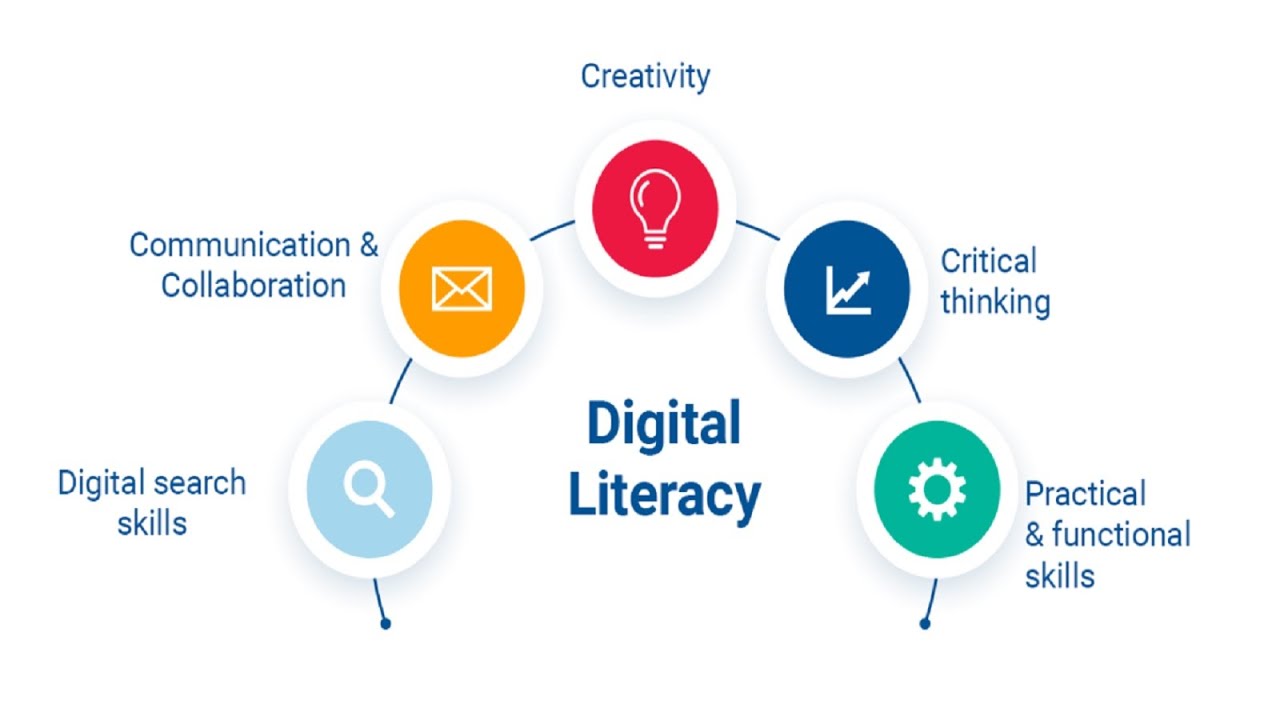20. Literasi Digital - Hukum dan Etika Digital di Indonesia - Informatiaka kelas XI
Summary
TLDRThis video introduces digital law and ethics in Indonesia, emphasizing the importance of responsible behavior in the digital world. It covers key topics like the ITE Law, the Personal Data Protection (PDP) Law, and digital ethics, highlighting issues such as online privacy, the impact of disinformation, and copyright. The script encourages understanding legal frameworks governing online activities and stresses the moral responsibilities of digital citizens. It outlines the difference between law and ethics, explores challenges in enforcement, and calls for a balanced approach to creating a safe, ethical, and legally compliant digital environment.
Takeaways
- 😀 Digital law governs the use of digital technology, including social media, e-commerce, and personal data protection in Indonesia.
- 😀 Digital ethics focuses on responsible and moral behavior in cyberspace, guiding users to respect privacy and avoid harm to others.
- 😀 Laws like the ITE Law and the PDP Law regulate digital activities such as fraud, hate speech, and personal data misuse.
- 😀 The difference between digital law and ethics: laws are formal and enforceable with penalties, while ethics are informal and voluntary.
- 😀 The PDP Law in Indonesia gives individuals control over their personal data and ensures it is handled responsibly.
- 😀 Digital ethics includes respecting copyrights, avoiding plagiarism, and ensuring the protection of personal data and security.
- 😀 Violating digital ethics can damage reputation and trust, even without legal sanctions.
- 😀 The spread of hoaxes and misinformation is a major challenge in the digital world, contributing to social conflict.
- 😀 Law enforcement faces challenges in identifying anonymous perpetrators of digital violations, making enforcement difficult.
- 😀 Digital literacy is essential for understanding the legal and ethical responsibilities of internet use, especially for newcomers.
- 😀 Digital law and ethics work together to create a safe, fair, and responsible digital environment, protecting individuals and promoting responsible behavior.
Q & A
What is the main topic discussed in this video?
-The video discusses digital law and ethics in Indonesia, focusing on the importance of behaving ethically and legally in the digital world.
What is the difference between digital law and digital ethics?
-Digital law is formal and enforceable, with legal consequences such as fines or imprisonment for violations. Digital ethics, on the other hand, is informal and voluntary, guiding users to behave responsibly online, but lacks direct legal sanctions.
Why can someone be jailed for a post on social media in Indonesia?
-Someone can be jailed for a post on social media if it violates laws such as the ITE Law, which regulates online activities like fraud, hate speech, or misinformation. Legal sanctions can apply for harmful actions online.
What are the main legal frameworks governing digital activities in Indonesia?
-The main legal frameworks include the ITE Law (Electronic Information and Transactions Law), the PDP Law (Personal Data Protection Law), and other laws such as those regulating broadcasting and intellectual property.
What does the PDP Law focus on?
-The PDP Law focuses on personal data protection, ensuring how personal data is collected, stored, used, and giving individuals the right to control their own information.
How does the ITE Law contribute to digital law in Indonesia?
-The ITE Law regulates online activities such as electronic commerce, fraud, hate speech, and other illegal behaviors in cyberspace, aiming to prevent misuse of information technology.
What is digital ethics and how is it different from digital law?
-Digital ethics is a set of guidelines that govern moral user behavior in the digital world, such as respecting privacy, avoiding harm, and protecting data security. Unlike digital law, it is not enforceable by law but serves as a moral compass for responsible online conduct.
What are some examples of unethical digital behavior?
-Examples of unethical digital behavior include spreading false information, engaging in hate speech, cyberbullying, plagiarism, and violating others' privacy.
What are the challenges in enforcing digital law and ethics in Indonesia?
-Challenges include difficulties in identifying anonymous perpetrators, the spread of hoaxes and fake news, lack of digital literacy among users, and ensuring the protection of personal data amid security threats.
How can digital ethics impact a person's or organization's reputation?
-Violations of digital ethics, while not legally punishable, can harm a person or organization's reputation, diminish trust, and lead to social and professional consequences.
Outlines

This section is available to paid users only. Please upgrade to access this part.
Upgrade NowMindmap

This section is available to paid users only. Please upgrade to access this part.
Upgrade NowKeywords

This section is available to paid users only. Please upgrade to access this part.
Upgrade NowHighlights

This section is available to paid users only. Please upgrade to access this part.
Upgrade NowTranscripts

This section is available to paid users only. Please upgrade to access this part.
Upgrade NowBrowse More Related Video

Empat Pilar Literasi Digital, Apa Itu??

Mengenal Empat Pilar Utama Literasi Digital | Kecakapan, Budaya, Etika, dan Keamanan Digital

Materi Etika Komputer dan Haki

Literasi Digital : Cakap Digital

ETHICS IN INFORMATION TECHNOLOGY | KELOMPOK 10

Pentingnya kewarganegaraan digital dan bagaimana cara menjadi warga digital yang baik
5.0 / 5 (0 votes)